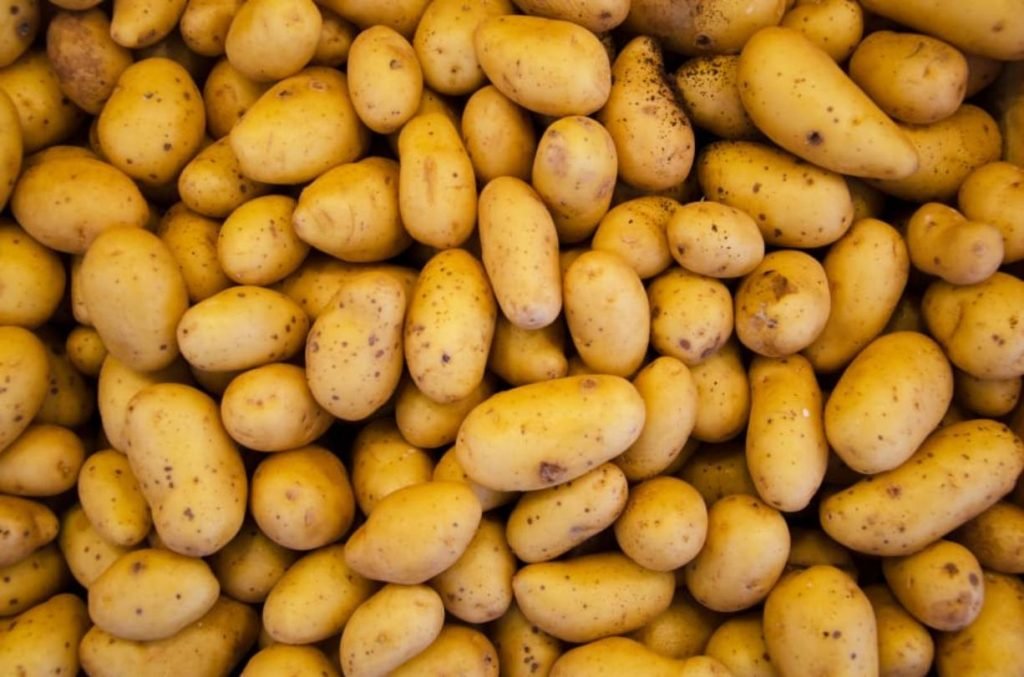FG pledges to support potato, root crops initiatives, to enhance production, processing
The Federal Government has solicited for more financial support and opportunities to enhance production, processing and upscaling of investment in the potato value chain.
In a statement, Mr Ezeaja Ikemefuna, Chief Information Officer, Ministry of Agriculture, quoted the Minister of State for Agriculture and Rural Development, Mr Mustapha Shehuri, as saying this at the first international Potato Value Chain and Roots Summit in Plateau State on Thursday.
The theme of the summit was “Repositioning Potato and Root Crops Agribusiness in Plateau State issues, challenges and prospects”.
Shehuri said agriculture, being the focus of the Federal Government’s diversification agenda, deserves a better agro-financing to provide credit facilities to support the sector’s Value Chain activities.
He said the ministry would explore the opportunities and resources available to support subsequent initiatives that would boost Potato and other Root Crops Production and Processing.
Read Also: Israel reaffirms commitment to support NIBF, deepen cooperation…
“Nigeria has a comparative advantage in the production of Root and Tuber Crops. In reality, the country leads in the production of Yam, Cassava and Sweet Potatoes in Africa, and ranks as 7th highest producer of Irish Potatoes.
“The Ministry is also aware of the huge investment opportunities that exist within the Irish Potato Value Chain.
“However, there are some challenges such as poor seed, disease infestation (late blight), inadequate storage facilities and mechanisation among others that must be addressed at both the Federal and State levels.
“The Ministry is firmly committed to tackling these challenges and will invest resources to this effect for the benefit of potato farmers in Nigeria,” he said.
The Minister disclosed that some of the measures taken to tackle these challenges included the establishment of Tissue Culture Centre at the National Root Crop Research Institute (NRCRI) Sub-station, Jos, Plateau, to solve the seed problems.
“A 20-hectare irrigated land which is also ongoing to support seed multiplication and a 10-ton cold storage facility are currently being built in the station.
“In addition, two cottage factories have been constructed at Pankshin and Bokkos Local Government Areas (LGAs) to support processors in the State to address post-harvest losses.
“All these have been done in recognition of Plateau State as the highest producer of Irish Potatoes in Nigeria and sub-Saharan Africa. As a matter of fact, the Plateau State Rural Economy revolves around Potato production.
“Recently, the Ministry procured some equipment to support production, and these equipment have been made available for Potato Cooperatives/Farmers at highly-subsidised rates,” he said.
He urged Potato farmers across the nation to take advantage of numerous supports available to boost production, improve processing and increase income.
Shehuri appreciated efforts of other potato producers in States like Adamawa, Kano, Kaduna, Cross River, Bauchi, Taraba, Katsina, Jigawa, Zamfara, Kebbi, Nasarawa and Sokoto.
“These states are also leading producers with good and suitable climate and they also optimised their production all year round,” he said.
He appealed for more robust collaboration with relevant Government Authorities, Agencies, Research Institutes and other Non-Governmental Stakeholders for a holistic approach to the revitalisation of the Potato Value Chain and Root Crops.
In his remarks, the Governor of Plateau, Simon Lalong, represented by the Deputy Governor, Prof. Sonni Tyoden, said: “As for potato, we are second to none in Nigeria and have a high reputation for production of the crop in large quantities.
“This international conference is indeed holding at a time when we have put our best foot forward in consolidating our position as far as potato is concerned in Nigeria. Jos Potato has come to stay and we will drive it to higher heights.”
Speaking also, Dr Hosea Finangwai, the Commissioner for Agriculture, Plateau, said the Summit provided the platform for smallholder farmers to collaborate with stakeholders towards improving the livelihood of farmers by increasing production and income, especially by women and youths in the State.


